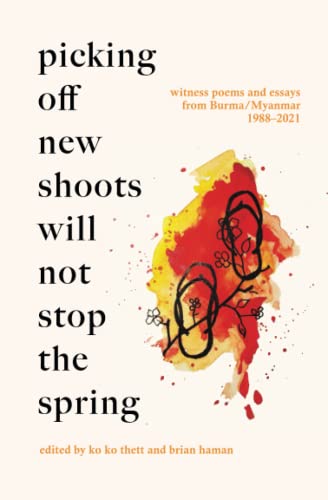What do you think?
Rate this book


266 pages, Paperback
Published January 29, 2022
See with my eyes, think with my mind,
And feel with my heart for a second.
If you were me, you would definitely be
Desperate to die, rather than survive.
We don’t have any god to rescue you, do we? You didn’t even dare to squash a mosquito.
Now you are a murderer and a terrorist.
It’s such a joke, and the joke is not funny.
To wilt is to bloom
That’s the flowers’ doctrine.
You may crush us, we may fall,
But when we die we rise again.